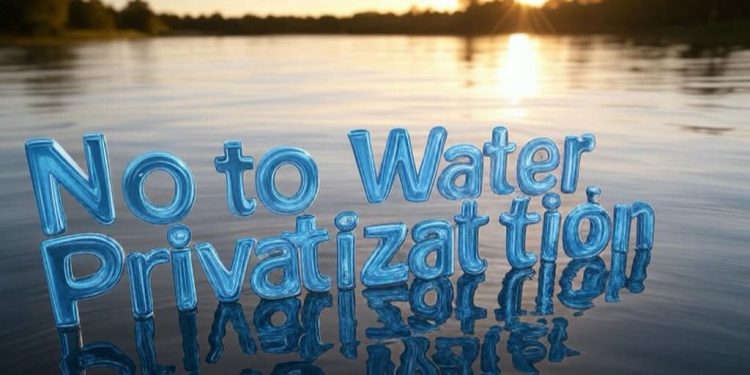In commemoration of World Water Day 2025, Our Water Our Right Africa Coalition (OWORAC) has raised the alarm over the increasing push for water privatisation across Africa.
The coalition warned that the climate crisis must not be used as a pretext to hand over public water systems to private corporations, noting that the action will further contribute to the water crisis on the continent.
In a joint press statement, the coalition called on African governments to protect water as a public good, rejecting policies that treat water as a market commodity.
OWORAC warned that rising global temperatures, driven by unchecked resource extraction and corporate negligence, are already worsening freshwater shortages across the continent.
According to the coalition, Africa is facing a water crisis, with over 1.3 billion people experiencing water insecurity daily.
“The glaciers that sustain life and feed our rivers, such as those on Mount Kilimanjaro, the Rwenzori Mountains, and Mount Kenya, are melting at alarming rates
“This threatens major water sources like the Nile and Congo rivers, exacerbating droughts, food insecurity, and deepening social inequality,” the coalition said.
For communities already struggling to access clean and affordable water, the situation is dire. OWORAC warned that without urgent action, the effects of climate change on water security would be catastrophic.
The coalition linked the worsening climate crisis to the increasing push for water privatisation, describing them as “two sides of the same coin”.
The coalition also accused corporations and financial institutions of exploiting climate-induced water scarcity to expand profit-driven water management models.
“The push for corporate control—through public-private partnerships, water concessions, and bulk water purchase agreements—is gaining momentum across Africa,” OWORAC said.
They further added that “Governments are ceding control of public water systems to private entities, leading to rising tariffs, reduced oversight, and water cutoffs for those who cannot afford to pay.”
The coalition cited failed water privatisation efforts in countries like Senegal, Kenya, Ghana, Cameroon, Mozambique, Gabon, and Tanzania, arguing that market-based approaches have only deepened inequality and excluded marginalised communities from accessing safe water.
Rejecting privatisation as a solution, OWORAC urged African governments to invest in public water infrastructure and strengthen policies that protect water resources.
“If climate change is reducing our water sources, the solution is to expand and protect public water systems—not sell them off.
“The claim that private sector investment is the answer to climate-induced water scarcity is flawed. Profit-driven models are not compatible with the urgent need to secure water as a human right,” the coalition noted.
They called for increased public financing, community-led water management, and stronger legislation to prevent water privatisation under the guise of climate adaptation.
The coalition also demanded that multinational corporations be held accountable for water exploitation and that financial institutions stop imposing privatisation as a condition for funding water projects.

